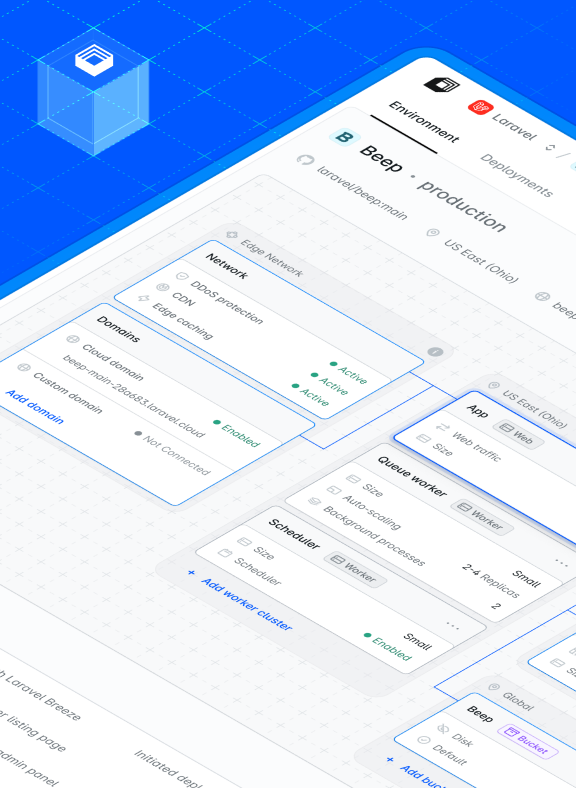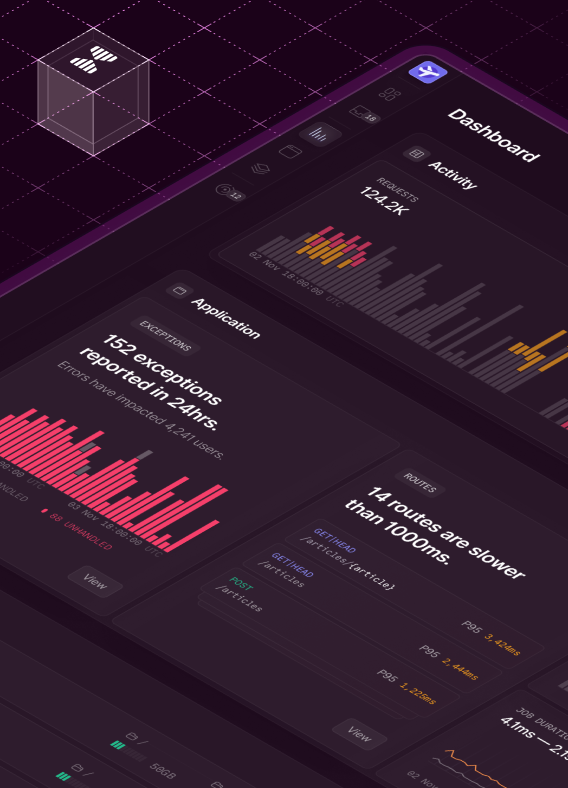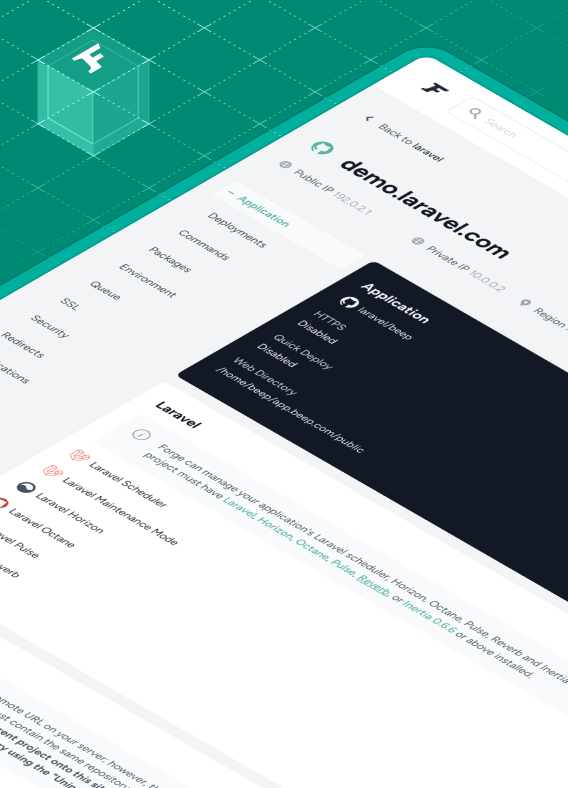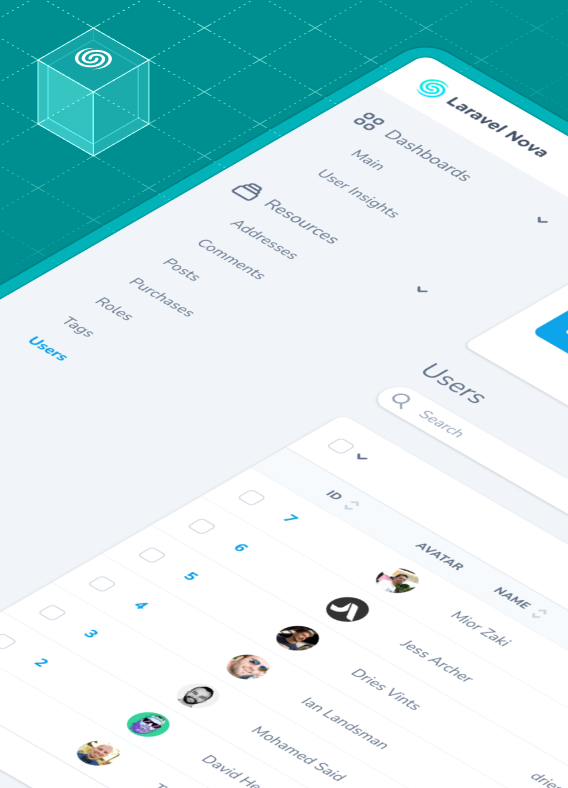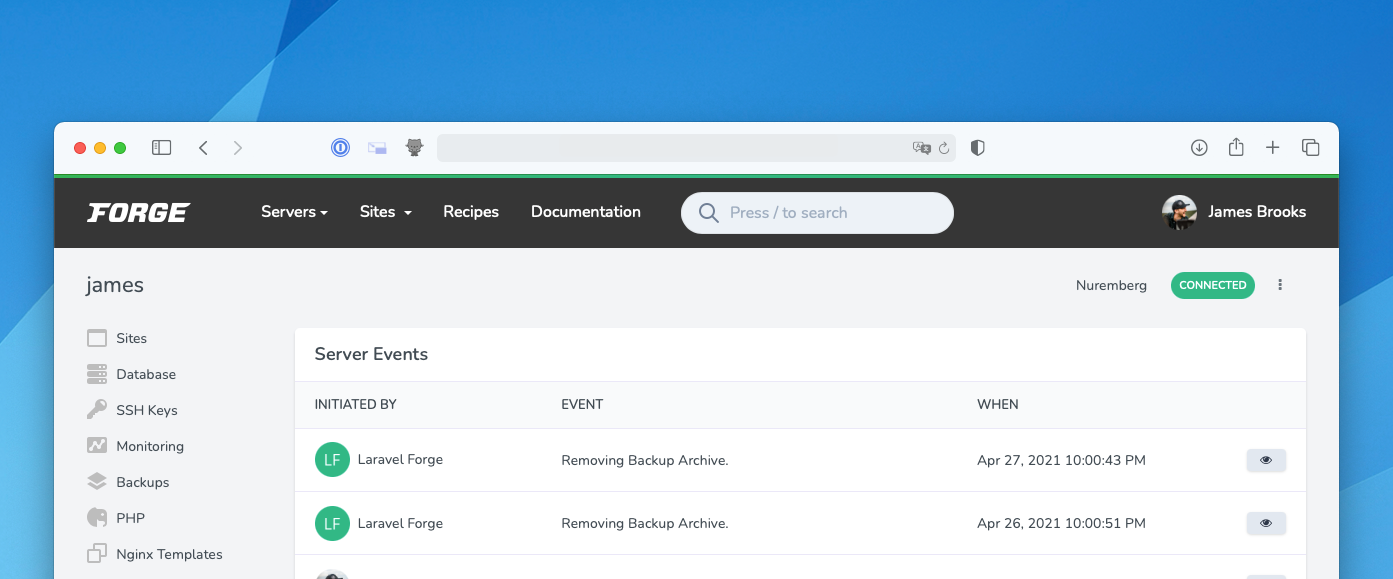April has been a busy month at Laravel Forge. With such a feature-packed month, I thought it would be great to finish the month with a blog post highlighting some of the best bits.
Firstly, Claudio Dekker joined us on the 5th April. Claudio will be primarily working alongside myself on Forge.
Server Events Panel
Claudio's first contribution to Forge is the addition of a new Server Events panel. This panel displays the last 30 days of server events, such as adding an SSH key, creating a new site, installing a new version of PHP, etc. It also doubles as an server audit trail, allowing you to see who did what, and when.
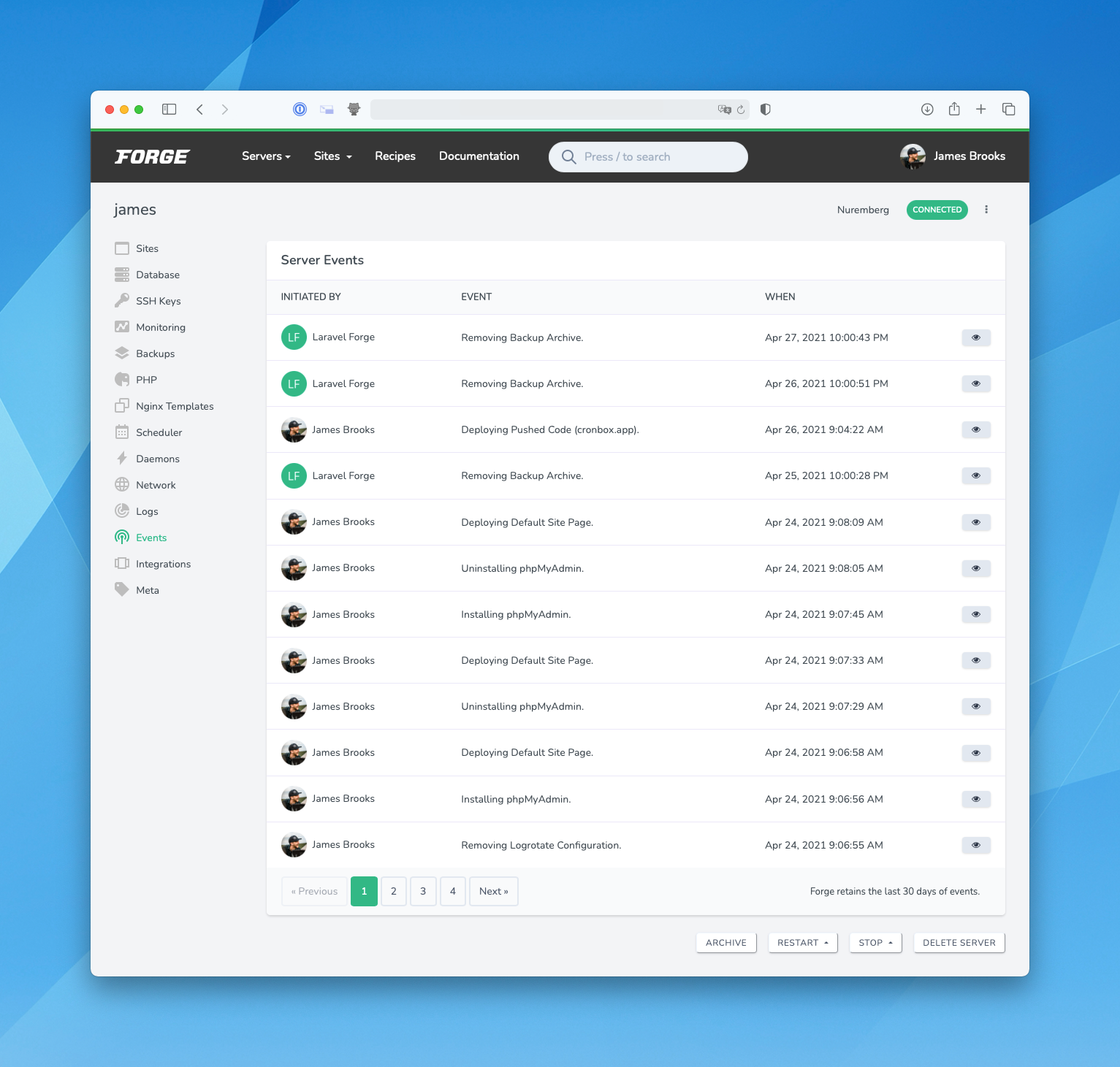 Site Commands Panel Improvements & API
Site Commands Panel Improvements & API
We shipped the Site Commands Panel at the end of March, and have continued to improve it since. The latest round of improvements include:
- Commands which fail due to server connection issues will correctly be marked as failed.
- The panel is now always available, even for sites that don't have projects installed. This is particularly useful when you're using Forge in combination with Envoyer.
- Commands can now be re-ran via the dropdown menu.
Furthermore, we also introduced an API for Site Commands. This is also available via the latest version of the forge-sdk package.
Editing Security Rules
Until recently, if you wanted to add additional users to an existing security rule, you'd have to first delete it and manually re-add it. Now, you can simply add a new rule with the same path and new users and Forge will automatically add the users to the existing rule.
Improved Support for Internationalized Domains
Whilst Forge has supported internationalized domains for a while, you had to know how to provide the decoded version of the domain.
The Forge frontend will now automatically encode and decode the domain name for you at every point between adding the new site, creating the Nginx configuration, and requesting LetsEncrypt certificates.
When using the API to manage sites, you should encode and decode the domain manually.
Change Databases Within Backups
Database Backups have been a much-loved feature in Forge and we've continued to develop it since releasing it last year.
When editing a backup configuration, it is now possible to change the databases that will be backed up. If the selected databases are changed, Forge will ask you to confirm that it's an intended change to prevent any accidental data loss.
 Hetzner Backups
Hetzner Backups
Hetzner's "Daily Backups" option may be enabled when creating a server to enable the provider's daily backup feature, similar to DigitalOcean's backup offering.
Laravel Octane Support
We've announced Laravel Octane support on our blog already, but we couldn't not mention it again!
The feedback from users already testing Octane has been great, and we plan on releasing the first stable release of Laravel Octane next week.
Environment Panel Improvements
The Environment Panel has been updated with a few neat features:
- The panel now polls in the background for server-side changes and notifies you if it has changed.
- The contents of the file are now only loaded when the panel is viewed.
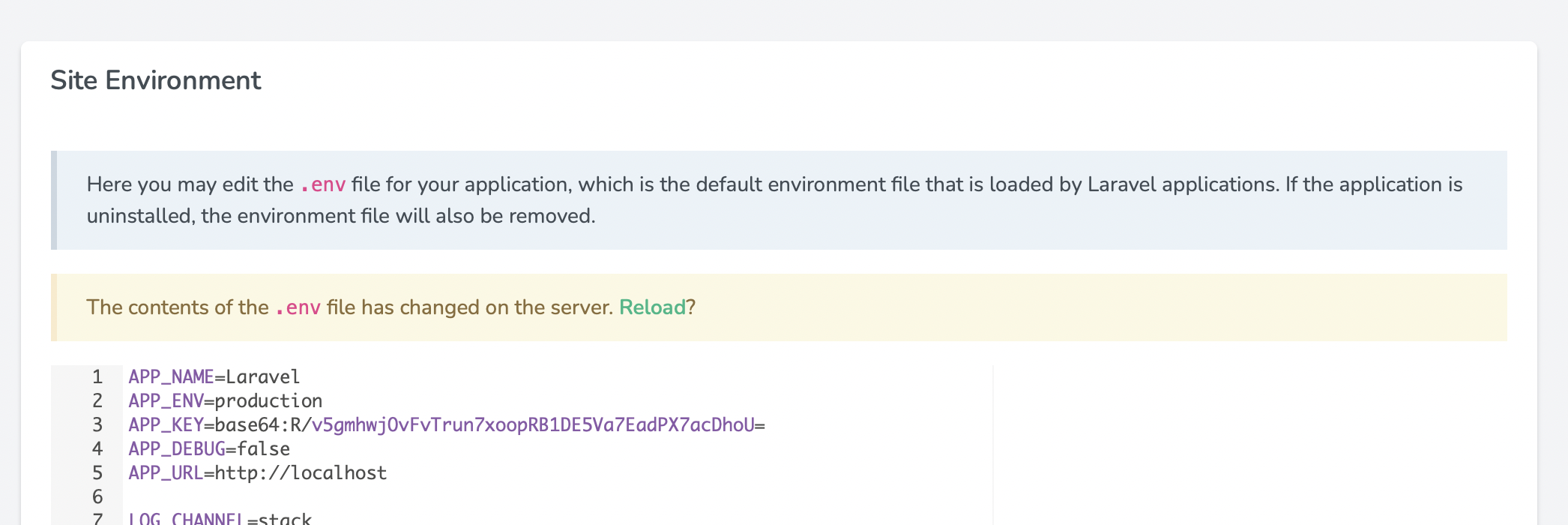 DigitalOcean VPC Support
DigitalOcean VPC Support
Last year DigitalOcean replaced their Private Network feature with a much better VPC offering.
A VPC (or Virtual Private Cloud) allows you to privately network your servers together so that they can communicate via a local network.
By default, DigitalOcean has already created a VPC for some of their available regions. Forge will now allow you to select an existing VPC or create a new one.
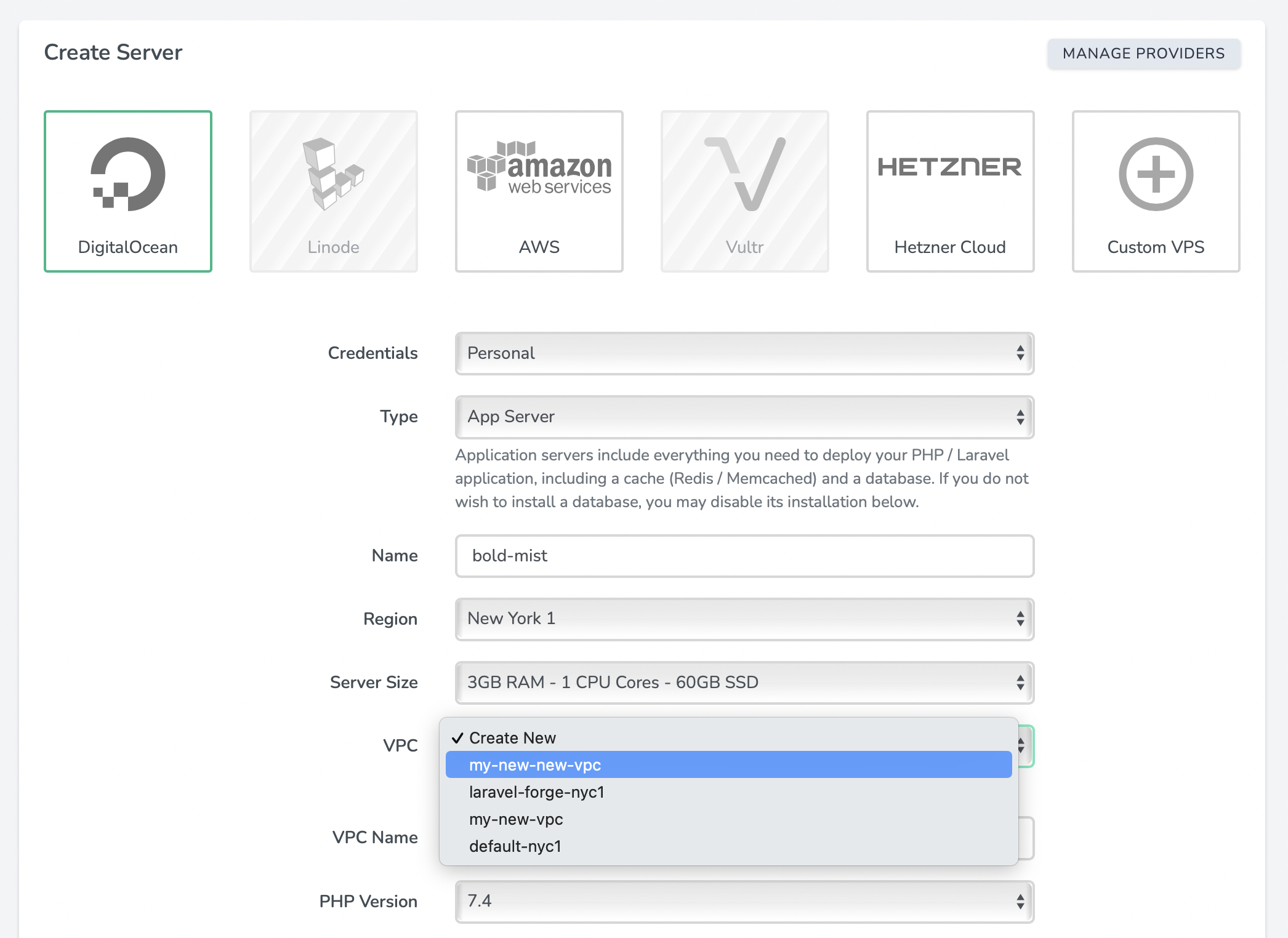 Better Deployment Failure Email Notifications
Better Deployment Failure Email Notifications
Being notified of failed deployments is critical to ensuring that your changes actually deployed.
You can now manually set who should be notified of failed deployments. Previously, only the site owner and circle members would be notified.
LetsEncrypt (SSL) Improvements
Finally, we've made several stability improvements to the way LetsEncrypt certificates are issued, and have also added the ability to select a Public Key Algorithm.
While most of our customers are already using modern ECDSA-based SSL certificates on their websites, this change means that those who need an (older, but still secure) RSA-based SSL certificate, can now choose to do so.
We hope that these enhancements and features provide you with all the tools you need for easier server management.
If you don’t have a Forge account, now is a great time to sign up! Forge allows you to painlessly create and manage PHP servers which include MySQL, Redis, Memcached, database backups, and everything else you need to run robust, modern Laravel applications.


